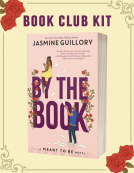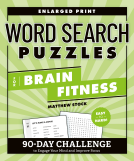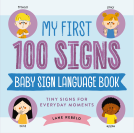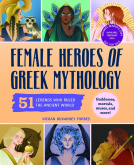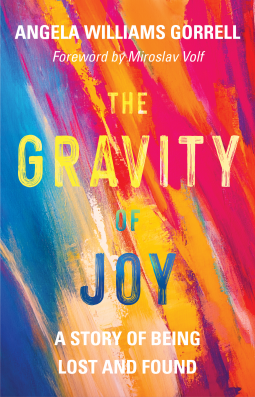
The Gravity of Joy
A Story of Being Lost and Found
by Angela Williams Gorrell
This title was previously available on NetGalley and is now archived.
Send NetGalley books directly to your Kindle or Kindle app
1
To read on a Kindle or Kindle app, please add kindle@netgalley.com as an approved email address to receive files in your Amazon account. Click here for step-by-step instructions.
2
Also find your Kindle email address within your Amazon account, and enter it here.
Pub Date Mar 09 2021 | Archive Date Nov 04 2021
Talking about this book? Use #TheGravityofJoy #NetGalley. More hashtag tips!
Description
“My vocation was supposed to be joy, and I was speaking at funerals.”
Less than a year after joining the Theology of Joy and the Good Life project at the Yale Center for Faith and Culture, Angela Gorrell got word that a close family member had died by suicide. Less than a month later, she lost her father to a fatal opioid addiction and her nephew, only twenty-two years old, to sudden cardiac arrest. The theoretical joy she was researching at Yale suddenly felt shallow and distant—completely unattainable in the fog of grief she now found herself in.
But joy was closer at hand than it seemed. As she began leading Bible studies at a women’s maximum-security prison, she met people who suffered extensively yet still showed a tremendous capacity for joy. Talking with these women, many of whom had struggled with addiction and suicidal thoughts themselves, she realized: “Joy doesn’t obliterate grief. . . . Instead, joy has a mysterious capacity to be felt alongside of sorrow and even—sometimes most especially—in the midst of suffering.”
In The Gravity of Joy, Gorrell uses her search for authentic, grounded Christian joy to reflect on the larger societal need for joy as a counteragent to the despair all too prevalent in the twenty-first century. Inviting action in response to the tragedies of addiction and suicide, she articulates a vision for communities that yearn for joy and “walk together through the shadows” to find it.
Table of Contents
Introduction
1. Sheer Silence
2. Hooked
3. Unleashed
4. Helpful, Help
5. The Search
6. Bright Sorrow
7. Stories to Tell
8. Joy
Epilogue
Available Editions
| EDITION | Hardcover |
| ISBN | 9780802877949 |
| PRICE | $21.99 (USD) |
Average rating from 3 members
Featured Reviews
I love the title of this memoir; it reminds one that finding joy is not something to be taken lightly. It is also a reminder to fully experience joy when it appears in one’s life.
This book is one that tells about both heartbreak and resilience. The author was offered the incredible opportunity to study the topic of joy at Yale’s Center for Faith and Culture. While given this experience, the author was also presented with multiple family losses in quick succession. Joy was not her dominant emotion.
However, Ms. William Gorrell went on to learn a lot about joy through her work at a women’s prison. Interacting with and hearing the inmates’ stories was an extraordinary experience and influenced the author’s world view.
This book is geared towards a Christian readership but those of other faiths might also enjoy it.
The Gravity of Joy tries to understand and measure the concept and feeling of joy against research done from multiple disciplines. The author, who describes herself as a practical theologian, has proposed that joy be a counteragent to America’s crisis of despair.
In early 2016, Angela was hired by the Yale Center of Faith and Culture to work on the Theology of Joy and the Good Life project. At this point, she was full of hope and the future filled with possibilities. Within a year, she lost three family members within four weeks. Her cousin’s husband died by suicide, her nephew died of a heart attack, and her father died as a result of illness stemming from his opioid addiction.
Through the throes of her sorrow, Angela felt that "life was not joyful. It was a long walk towards death." She felt suddenly ill equipped to discuss joy, let alone teach others to strive to achieve it.
Struggling with grief, Angela became part of a team leading a Bible study at a women’s prison. It was there that she became aware of the helplessness of the lives of the female convicts, how badly the odds were stacked against them, and how they cling to hope. These women acted as the friends who took the lame man on a mat to Jesus. Lost herself, Angela helped the prison women and was helped by them in turn.
The author’s experience in the prison ministry touches our hearts, making women like Amy, Gloria and Jayla and many others real to us. Her experience there proves that "Joy has grit… Joy has a mysterious capacity to be felt alongside sorrow and even -- sometimes most especially -- in the midst of suffering."
It is these experiences, combined with stories from her life and other observations that make up the book.
Each chapter begins with a verse from a famous writer, such as Rainer Marie Rilke, the Psalms, Acts of the Apostles etc. This quote sets the tone for the chapter.
Angela relates her commentary to relatable events, such as Anthony Bourdain’s death by suicide, even as he projected joy and passion for his work. Along the way, we get introduced to poems like Walt Whitman’s “O Me! O Life!” along with bits of her course work that she teaches at Life Worth Living.
The writing style is engaging, friendly and meaningful. The author writes candidly on subjects that must have been painful to write about, in particular, her father’s addiction to opioid pills and how they altered his personality.
With time, Angela learns that "It is incredibly difficult to lovingly bear witness to grief rather than walking away or trying to fix it. It is much harder to share space with grief, to breathe its pungent air."
Talking to the family members of young people who have given in to their addictions, she creates a counter to the culture of despair. She encourages us to name and acknowledge our emotions, particularly our grief and fears.
The author gives us real examples of young people driven to death on account of addictions. She accurately spells out what is wrong with the world today. The fact that social media has influenced us to believe that life matters only if there are high impact achievements. And that people obsess over ways to market their life better as if they were products instead of human beings.
Part of facing emotions is attending to grief through deep listening. To lament openly the things that bring us pain and to search hard for beauty.
Angela draws parallels between her own situation and Holy Saturday’s unique place in Christ’s Passion. She likens Holy Saturday to the in-between space when we no longer feel overwhelming grief but comfort and meaning are beyond our reach too. In this space, she realises that "The God who sometimes is shrouded in sheer silence is apparently also the God of marching bands."
She urges us to seek joy and meaning in the midst of grief and reminds us to forge connections and listen to one another’s stories with empathy. So we realise we matter.
Through her experiences with grieving, Angela clarifies how joy and meaning can help us beat sorrow. "Despair struggles to breathe where meaning resides."
Readers who liked this book also liked:
We Are Bookish
General Fiction (Adult), Romance, Women's Fiction
JUNO
Arts & Photography, Comics, Graphic Novels, Manga, Travel
We Are Bookish
General Fiction (Adult), Mystery & Thrillers
Lane Rebelo
Children's Nonfiction, Parenting, Families, Relationships



